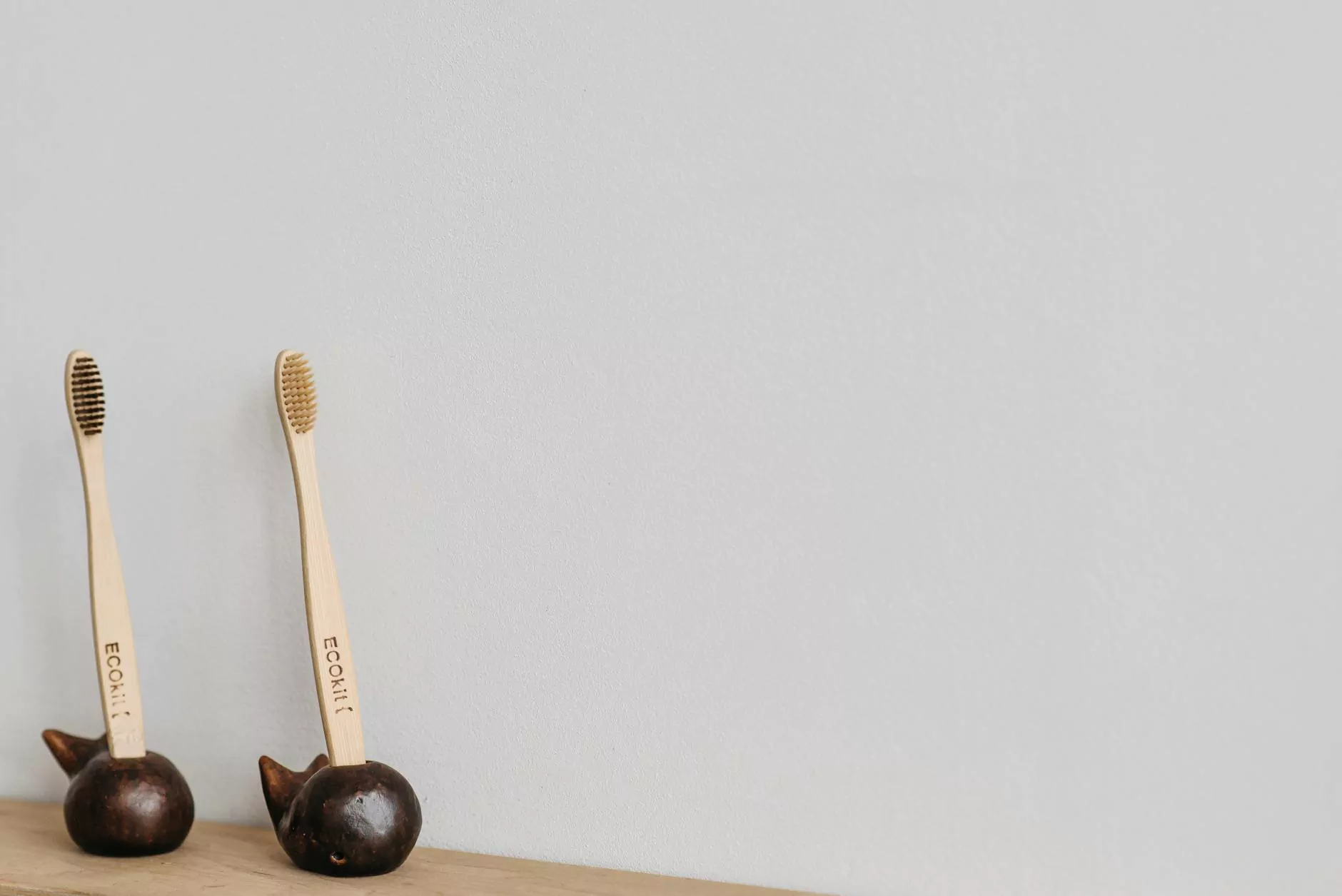Dental Guards for Bruxism: Your Ultimate Guide

Bruxism, the involuntary grinding or clenching of teeth, is a common dental issue that affects many individuals. Frequent bruxism can lead to various oral health problems, including worn-down teeth, jaw pain, and temporomandibular joint (TMJ) disorders. Thankfully, one effective solution to combat the negative effects of bruxism is the use of dental guards for bruxism.
What Are Dental Guards for Bruxism?
Dental guards, also known as occlusal splints or night guards, are custom-made devices designed to cover the teeth and prevent them from grinding against one another while sleeping. These dental appliances act as cushions, absorbing the pressure and protecting the teeth from damage. They can also help alleviate pain associated with bruxism by providing a less stressful alignment for the jaw and dental structures.
Why Should You Consider Dental Guards for Bruxism?
The need for dental guards arises due to the potential consequences of unmanaged bruxism. Here are several compelling reasons to consider investing in dental guards for bruxism:
- Protection Against Tooth Damage: Grinding can lead to significant wear and tear on your teeth, resulting in chips, fractures, and sensitivity. Dental guards provide a protective barrier, safeguarding your dental health.
- Reduction of Jaw Pain: Many individuals experience jaw pain or discomfort due to bruxism. Dental guards help distribute force evenly across the jaw, thereby alleviating tension and pain.
- Improvement of Sleep Quality: Since many people grind their teeth during sleep, wearing a dental guard can improve overall sleep quality by reducing the disturbances caused by grinding.
- Prevention of TMJ Disorders: Bruxism can contribute to temporomandibular joint disorders, which can be painful and complex. A dental guard can help reduce the strain on the jaw joint.
Types of Dental Guards for Bruxism
When it comes to dental guards, there are several options available, each tailored to meet different needs and preferences:
1. Custom-Made Dental Guards
Custom-made dental guards are crafted by dental professionals based on impressions of your teeth. These are generally considered the most effective type because they fit your mouth perfectly, providing comfort and optimal protection.
2. Boil-and-Bite Guards
Boil-and-bite guards are semi-custom options available over the counter. You soften the material in hot water, bite into it to create a mold of your teeth, and then let it harden. They offer a decent fit but may not be as comfortable or effective as custom-made guards.
3. Stock Mouthguards
Stock mouthguards are pre-formed and ready to wear; however, they often do not fit well, making them uncomfortable and less effective. They are typically used for sports rather than bruxism.
How to Choose the Right Dental Guard for Bruxism
Selecting the right dental guard is crucial for managing bruxism effectively. Consider the following factors:
- Fit: A proper fit is essential. Custom-made options typically provide the best fit.
- Comfort: Since the guard will be worn during sleep, it should be comfortable enough not to disrupt your resting patterns.
- Material: Dental guards can be made from different materials. Discuss with your dentist to choose one that best suits your needs.
- Price: Custom guards typically cost more than over-the-counter options, but they offer better protection and comfort.
How to Care for Your Dental Guard
Once you have chosen your dental guard, maintaining its hygiene and condition is essential. Here are some tips for proper care:
- Clean Regularly: Rinse your guard with cold water before and after each use. Clean it with a soft toothbrush and mild soap or a special mouthguard cleaner every week.
- Store Properly: Keep your dental guard in a ventilated case when not in use. This helps prevent bacterial growth and maintains its shape.
- Avoid Heat: Store your guard away from heat sources, as high temperatures can distort its shape.
- Inspect for Damage: Regularly check your dental guard for signs of wear and tear. If you notice any significant wear or it doesn't fit properly anymore, consult your dentist for a replacement.
Seeing Your Dentist for Bruxism
While dental guards can significantly help manage bruxism, consulting with a qualified dentist is crucial. They can assess the severity of your condition and recommend the best course of action. Here are some considerations:
- Diagnosis: Your dentist can help diagnose whether you suffer from bruxism and assess any damage done to your teeth and jaw.
- Custom Solutions: Each patient's bruxism is unique, so a proper evaluation allows your dentist to provide tailored solutions that may include dental guards, behavioral therapy, or other treatments.
Additional Treatments for Bruxism
While dental guards for bruxism are a primary line of defense, other approaches may complement your treatment plan:
- Stress Management: Many people grind their teeth due to stress. Practices such as yoga, meditation, and deep-breathing exercises can help reduce stress levels.
- Behavioral Therapy: Cognitive-behavioral therapy can assist in identifying triggers for bruxism and teach strategies to break the habit.
- Botox Injections: Some dentists may recommend Botox injections in severe cases to relax the jaw muscles and reduce the impulse to grind.
- Medication: In certain situations, medications may be prescribed to help manage anxiety or other underlying conditions contributing to bruxism.
Conclusion
Bruxism is a common issue that can lead to significant dental problems if left untreated. By using dental guards for bruxism, individuals can protect their teeth, alleviate discomfort, and improve their quality of life. If you suspect that you are experiencing bruxism or its effects, schedule an appointment with a trusted dentist today. With the right care and treatment, you can reclaim your dental health and enjoy a pain-free life.
For more information about dental guards and bruxism, visit medentalsf.com.









